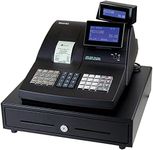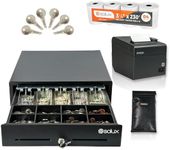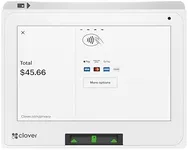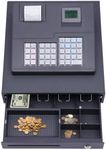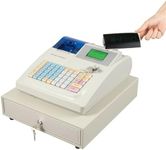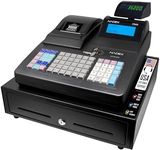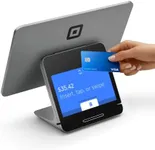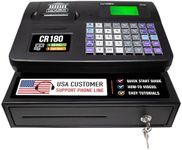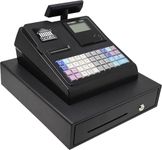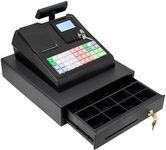Buying Guide for the Best Cash Registers
Choosing the right cash register for your business is crucial as it can streamline your operations, improve customer service, and help you keep track of sales and inventory. When selecting a cash register, consider the size of your business, the volume of transactions, and any specific features you might need. Here are some key specifications to consider when picking a cash register and how to navigate them to find the best fit for your needs.Type of Cash RegisterCash registers come in various types, including traditional, electronic, and point-of-sale (POS) systems. Traditional cash registers are basic and suitable for small businesses with low transaction volumes. Electronic cash registers offer more features like sales tracking and inventory management, making them ideal for medium-sized businesses. POS systems are the most advanced, integrating with other business systems and offering extensive features, perfect for larger businesses with high transaction volumes. Choose based on the complexity of your operations and the level of integration you need.
Number of Departments and PLUsDepartments and PLUs (Price Look-Up codes) help categorize and manage your inventory. Departments are broad categories like 'Beverages' or 'Snacks,' while PLUs are specific items within those categories. A cash register with more departments and PLUs allows for better organization and detailed sales tracking. Small businesses with fewer products might need fewer departments and PLUs, while larger businesses with diverse inventories will benefit from more.
Receipt PrintingReceipt printing is essential for providing customers with proof of purchase and for your own record-keeping. Cash registers can have thermal printers, which are fast and quiet, or impact printers, which are more durable and can print on multi-part paper. Thermal printers are suitable for most businesses, while impact printers are better for environments where receipts need to be more durable, like in kitchens or outdoor settings.
Connectivity and IntegrationModern cash registers can connect to other devices and systems, such as barcode scanners, credit card processors, and inventory management software. This connectivity can streamline operations and improve accuracy. If your business relies on multiple systems, look for a cash register that offers easy integration with these devices. For simpler operations, basic connectivity might suffice.
Security FeaturesSecurity features like password protection, cashier sign-ins, and secure cash drawers help prevent theft and ensure that only authorized personnel can access the register. These features are crucial for businesses with multiple employees handling transactions. Evaluate the level of security you need based on the size of your staff and the nature of your business.
Ease of UseA user-friendly cash register can save time and reduce errors during transactions. Look for features like intuitive interfaces, programmable keys, and clear displays. If you have a high turnover of staff or less tech-savvy employees, prioritize ease of use to ensure smooth operations and quick training.
Reporting CapabilitiesReporting capabilities allow you to track sales, inventory, and employee performance. Advanced cash registers can generate detailed reports that help you make informed business decisions. Consider the level of detail you need in your reports. Small businesses might need basic sales reports, while larger businesses might require comprehensive reporting on various aspects of their operations.


